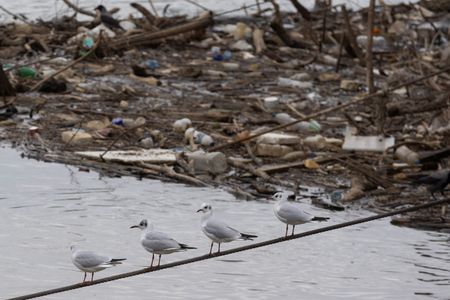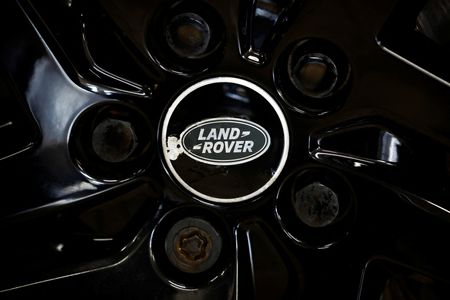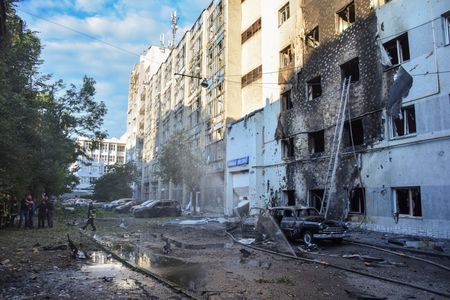By Kate Abnett
BRUSSELS (Reuters) – Most of European Union surface water bodies are polluted by chemicals, the European Commission said on Tuesday, in a report that revealed the damaged state of Europe’s water resources.
The European Union is drafting plans this year to tackle water shortages and droughts being worsened by climate change, and address the intense pressure on water supplies from farming, pollution and sprawling urbanisation.
By the EU’s assessment, just 39.5% of EU surface water bodies like lakes, rivers and coastal waters, were in good ecological condition as of 2021. Only 26.8% had a good chemical status, down from 33.5% in 2015.
The report noted partial improvements – for example, in aquatic plants in lakes – but these did not rescue the overall health of water bodies.
The situation is better in Europe’s groundwater bodies, 86% of which had a good chemical status – although nitrates from farming were polluting groundwater supplies in most EU countries, the data showed.
“The situation for water in the EU is in bad shape,” EU Environment Commissioner Jessika Roswall told Reuters in an interview last month. “We have taken water for granted for so long. And I think it’s time now that we have this mindset change.”
Addressing the issue will be a political challenge – not least because it would involve tackling the substantial impact farming has on water supplies, through irrigation and pollution like nitrates from fertilisers that leach off fields.
Farmers across Europe wielded their political influence last year, staging months of sometimes violent protests against EU rules that resulted in Brussels scaling back some environmental measures.
The Commission said more radical measures were needed to tackle nitrates pollution, but it acknowledged these “could be politically difficult to adopt”.
With most countries expected to miss an EU target for all surface water to be in “good” status by 2027, failure to act could result in legal action. The Netherlands is already facing a court order to drastically cut nitrogen pollution, which damages water quality.
The EU could allocate more funds from its next budget to clean up water supplies – although those demands will compete with governments’ requests for more EU spending on defence and industry.
(Reporting by Kate Abnett; Editing by GV De Clercq)









